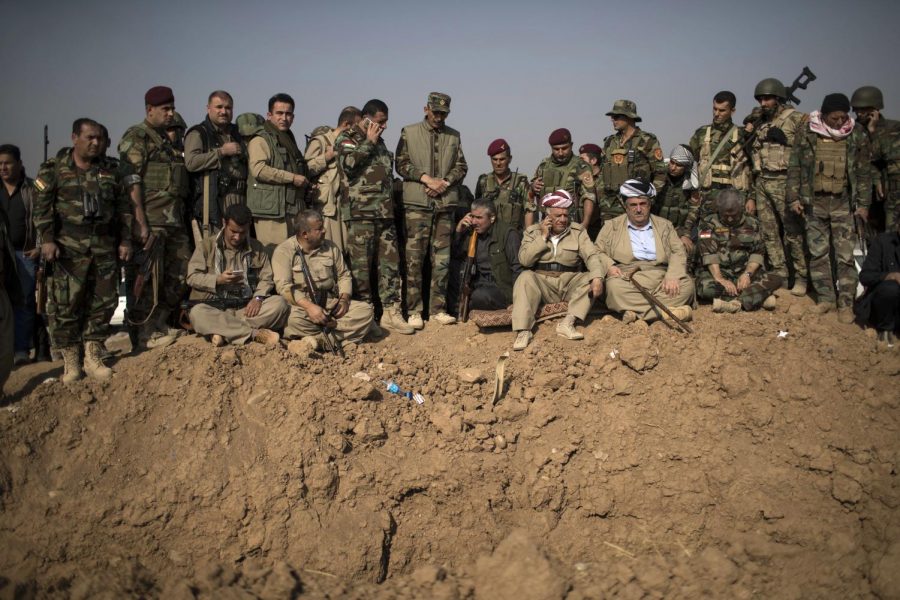Column: Yesterday’s News Today The Price of U.S. Friendship
Oct 10, 2019
What should a nation award to allies that have done the majority of the bleeding in a war? Surely some financial support for their damaged infrastructure, a tasty weapons deal or at the very least, advocacy for their statehood. This would especially be the case for an ally of the U.S., right? One can expect such things from the nation that created the sweeping reconstruction policy of the Marshall Plan.
Well, I hate to break it to you, but if you’ve been nodding along to that first paragraph, you’re in for a big surprise.
On Oct. 6, President Donald Trump announced that the U.S. will withdraw completely from Syria, making way for Turkey to envelop the northern side of the country. This wouldn’t be much of a problem if Turkey weren’t an authoritarian state with a penchant for bringing Kurds into the fold at the point of bayonets.
The Kurds are an ethnic group native to the mountainous areas of Western Asia. Kurdish populations can be found from Western Turkey to Iran. However, there is a strong population of Kurds in Western Europe as a result of several diasporas caused by Turkish-led ethnic cleansing, according to The Journal of Genocidal Research.
Kurds have a separate culture and identity from other ethnic groups in the Middle East; however, they have continuously been enclosed by the borders drawn by colonial powers after World War 1, as seen in the reneging of Allied forces on the Treaty of Sèvres.
Needless to say, the past was difficult for the Kurds. However, through the development of the Syrian Defense Force, known as the SDF, and the establishment of Iraqi Kurdistan, the Kurds have recuperated well. In Syria, Kurds restarted the region’s infrastructure and rolled back oppressive laws instituted by the Islamic State, according to the BBC.
Kurdish forces make up the majority of the U.S.-backed SDF forces that continue to be instrumental in the fight against IS. All of this is jeopardized by the U.S. capitulating to Tukish desires. By this action, Trump clarifies that his foriegn policy concerns itself with quick solutions rather than peaceful ones. Some will say that Turkey’s membership in the North Atlantic Treaty Organization prevents it from engaging in such actions. I’m sure those 2,500 civilians killed in the Balkans, as reported by Human Rights Watch, would agree with that.
In tandem with Turkey’s history of dealing with their Kurdish “problem” by blade and bullet, the nation is only three years removed from a military coup d’etat. U.S. Sen. Lindsey Graham offered a stark warning of economic sanctions if they do not comply with the human rights laws. Trump seconded this idea, saying on Twitter that Turkey would be in “big trouble” if it were to do anything rash, though he followed that statement up with “I’m not taking sides.”
Economic sanctions are a perfect solution, I mean they worked so well with Russia, China and North Korea.
In my criticism of this move by the Trump administration, I am not supporting a continuous war. What I am suggesting is that America should live up to its moniker of a democracy defender and support one of the most stable secular governments in the region. Trump’s decision can only sow discontent in the region, a discontent that bolsters Islamic State recruitment.
Allowing for an encore of a Kurdish genocide won’t help anyone in the Middle East.
However, I have a feeling that Trump’s continuation of Middle Eastern instability has something to do with increasing the military budget and his party’s deep affiliation with defense contractors. Maybe Trump, the GOP and even some Democrats stand to cash in on this war. Then again, no precedent for this exists, especially not in our wars in Iraq and Afghanistan.













